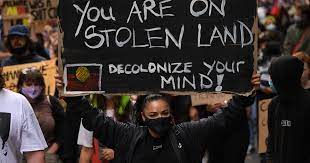FROM AMAZON RAINFOREST TO GLASGOW - AYTANA ALVARZ - ECUADOR
- makfor9
- 21 nov 2021
- Tempo di lettura: 2 min
Aggiornamento: 22 nov 2021
COP stands for Conference of Parties, the annual meeting of countries that have ratified the United Nations Framework Convention on Climate Change (UNFCCC). It was 1995 when the first COP was held. And every year since then, the UN has brought together nearly every country on earth for global climate summits. This year will be the Cop26 by the United Kingdom, hosted by Glasgow, where thousands of negotiators, government representatives, businesses and citizens will participate for twelve days of negotiations, from October 31 to November 12. They will mainly review what was essentially discussed at the Paris Agreement which is the commitment to aim to limit the rise in temperatures to 1.5 degrees is important because every decimal degree of warming will cause the Boss of many more lives and more damage to our livelihoods. In all of this, however, what role do developing countries like Ecuador play in this event?
First of all, we must consider that nations as Ecuador, with a social structure and levels of technology different from developed countries, use oil as their main source of energy and the use of fossil fuels on the national territory for years has caused great environmental damage, especially in those nature reserves that instead of being protected have been exploited for the construction of oil wells, such as Yasuni Park in the Amazon Rainforest.
It is for this reason that indigenous Amazonian collectives this November 3 left for Glasgow to demonstrate and participate as the main guardians of the Earth. Among these collectives we find the "Sapara" people, of which the still 500 specimens have assumed in recent years an anti-colonial posture in the face of the occupation of multinational oil companies such as Texaco or Chevron. Carolina Zambrano, climate justice leader of the organization Hivos, says that in addition to seeking funding and defining actions to adapt to climate change, a key point that Ecuador must address at COP26 is the fulfillment of human and indigenous rights, and the conservation of the Amazon Rainforest. Zambrano says that Ecuador must commit to take care of the rainforest and the indigenous peoples or nationalities that live there because it is a central issue to mitigate climate change.
One way to care for the Amazon is to limit extractivism in this region, but in July 2021, President Guillemo Lasso signed Decree 95 which aims to double the country's oil production to one million barrels per day. Belén Páez, Executive Director of Fundación Pachamama, says that it is necessary to present a new economic model that understands natural resources and uses them in a sustainable approach, leaving behind dependence on fossil fuels.




Commenti